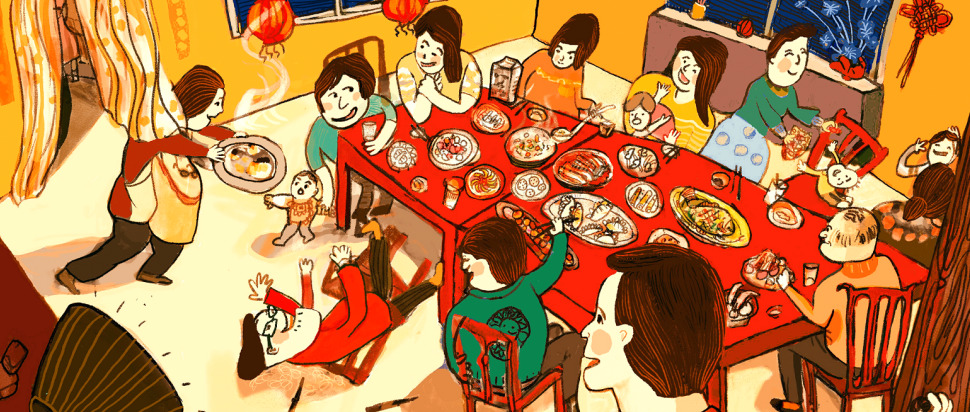Year of the Tiger: Lunar New Year in Scotland
恭喜發財! To celebrate Lunar New Year, one writer explores the significance of the holiday for many ESEA communities in Scotland
Lunar New Year, also known as Spring Festival, is celebrated in different forms all over the world. Traditional Vietnamese, Korean, Chinese and Japanese New Year celebrations all follow moon-based calendars while Mongolia, Tibet and certain parts of South Asia have their own versions of a Spring Festival often within the same couple of weeks in February. Because of this there are a huge number of different ways to celebrate, although some factors are more common than others amongst cultures.
For instance, New Year is most often seen as an opportunity to reunite with family, a fact which leads to what is often called the ‘largest annual migration of people in the world’ when people living in East and South East Asian cities travel back to their hometowns or villages in order to be with their loved ones. Once with family, food often plays a significant role in how people celebrate, with family feasts a common occurrence. There’s even a specific term for a New Year meal in Cantonese Chinese: 團年飯, literally a ‘reunion dinner’, which often consists of dumplings, fish and soups. Meanwhile, the Vietnamese term for celebrating their New Year is ăn Tết, which literally means ‘eating New Year’, and often includes a wide variety of vegetables as well as candied fruits.
Unfortunately, family feasts aren’t practical for everyone. East and South East Asian (ESEA) communities living in the UK often have to improvise around work commitments, financial pressures and local understanding, or lack thereof. Over time this has led to even more variation in the way people celebrate, with some families even deciding to use Christmas as their main familial get-together in lieu of New Year. However, for those who do celebrate, food still plays a pivotal role. It is often what defines New Year amongst ESEA people who celebrate, particularly those who find themselves unable to do so with family. As theatre-maker and singer-songwriter Taylor Roh told me during a recent conversation about New Year: “When I lived in Korea, I always looked forward to songpyeon, sweet rice cakes traditionally steamed over pine needles. Since moving to Scotland, as I don’t know any other Korean people here, I have mostly had to celebrate via the local Scottish-Chinese communities instead.”
For myself, the amount I celebrate the Spring Festival differs between years. While some of my most joyous family memories come from eating 扣肉, a particular celebratory braised pork dish popular amongst Hakka families, or sharing out dried plum candies bought specifically for the day, some years the logistics and economics of getting everyone together in one household are just too challenging when combined with work, studies or availability.
Yet wherever I am on the day itself I will try to make a special meal, even if it’s just for myself, or even if I’ve just had to work a long and tiring work shift. I share GIFs with friends and family featuring fireworks, red envelopes and the sparkling words “恭喜發財!” over WhatsApp. It’s not the same, of course, and I miss the delicious smell of my grandmother in the kitchen cooking and the sound of my grandfather with his cleaver chopping duck into chunks.
I even find myself missing the rituals around the meal itself, such as the process of pushing two small tables together to form one larger table in order to fit everyone around it, or the washing up afterwards, during which one of my cousins was always in charge of the sink while I dried up and another cousin put everything away again. These small moments would provide the perfect time to catch up with individuals away from the whole family. I also remember the funny moments of each year, whether it’s an uncle falling off his chair from laughing too much, or that one time it snowed and upon clearing away the condensation on the kitchen window from all the cooking, I was greeted by a glistening layer of pure white.
All of this is to say that Lunar New Year is so much more than new animal horoscopes, ancestor worship or lion dances. These can all be important to people, of course, and a prominent part of some people’s New Year, but as a whole the celebration is also so much more than any of its individual parts. And while Chinese New Year may be the best-known of the festivities here in Scotland, it’s only one of the many different New Years that are happening at or around the same time. So however you do, or don’t, celebrate the occasion, let me say that I hope that the beginning of Spring gives you cause to smile. And if you can, cook and eat something special today, even if it’s only for yourself. 恭喜發財!
